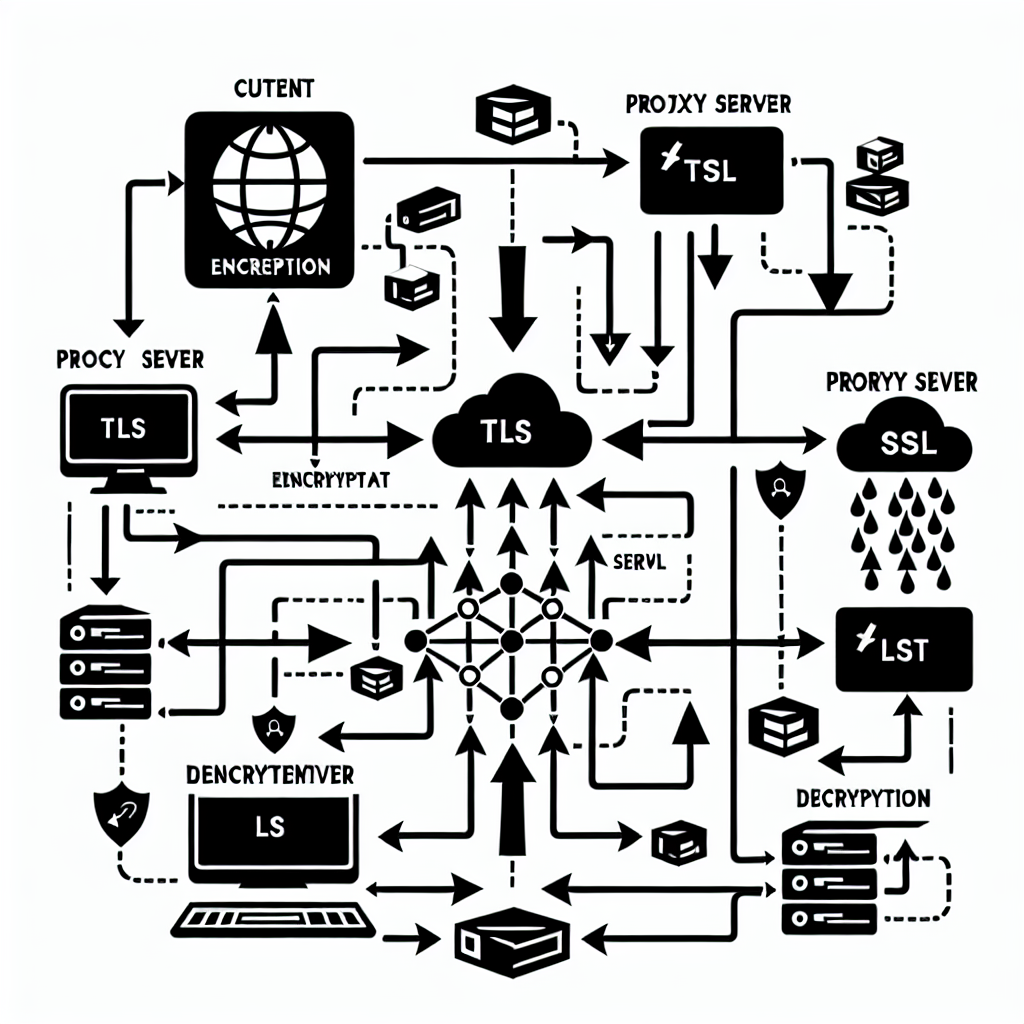Understanding TLS/SSL Encryption in the Context of Proxy Usage
In the vast, intricate web of the internet, where information flows like a river, security is the sturdy dam that keeps our data safe from prying eyes. At the heart of this security lie two closely intertwined acronyms: TLS (Transport Layer Security) and SSL (Secure Sockets Layer). Though SSL has largely been supplanted by TLS in modern applications, you might still hear the terms used interchangeably. For the sake of clarity, let’s consider them both under the umbrella of encryption protocols that safeguard our online communications.
What is TLS/SSL Encryption?
TLS/SSL encryption is a method of securing data transmitted over the internet, ensuring that sensitive information—such as personal details, passwords, and credit card numbers—remains private and intact as it travels from one point to another. Think of it as a secret language that only the sender and the receiver can understand. This encryption transforms readable data into an unreadable format, which can only be deciphered by someone who possesses the right key.
How Does It Work?
Imagine you're sending a postcard with your private thoughts written on it. Anyone who intercepts that postcard could read your message. Now, picture instead that you lock your message in a box, which is then sealed with a unique key. Only the intended recipient has the matching key to unlock it. This is essentially how TLS/SSL operates:
-
Handshake: When you connect to a secure website (one that starts with HTTPS), your browser initiates a handshake with the server. They exchange keys and agree on how to encrypt the data.
-
Encryption: Once the handshake is complete, your data is encrypted before it leaves your device. This means that even if a malicious actor intercepts the data while it's being sent, they would only see gibberish.
-
Decryption: Upon reaching the server, the encrypted data is decrypted using the agreed-upon key, allowing the server to read the message as intended.
Why Is It Important for Proxy Users?
Now, let’s introduce the proxy into our narrative. A proxy server acts as an intermediary between your device and the websites you visit. While this can enhance privacy by masking your IP address, it also raises a crucial question: How secure is your data when it passes through the proxy? Here’s where TLS/SSL encryption shines:
-
Privacy: Even if your data is traveling through a proxy, TLS/SSL encryption ensures that it remains secure from anyone who might want to snoop on your online activities.
-
Integrity: Encryption protects your data from being altered during transmission. If someone tries to tamper with it, the changes will be evident when the data is decrypted.
-
Authentication: TLS/SSL helps verify that you're actually communicating with the intended server and not an imposter—an important feature in a world rife with phishing attacks.
A Simple, Real-World Example
Picture this: You’re at a coffee shop, sipping your favorite brew, and you decide to check your bank account using their Wi-Fi. You connect through a proxy to hide your IP address, thinking you’re already pretty clever. But wait! What if your connection isn’t encrypted? Your sensitive data, like your login credentials, could be exposed to anyone nearby, including that person who seems overly interested in your screen.
Now, let’s add TLS/SSL into the mix. As you log in to your bank’s website (which uses HTTPS), the handshake occurs. Your login information is encrypted before it leaves your device, travels through the proxy, and reaches the bank’s server. Even if someone at the coffee shop captures the data, all they see is a string of unintelligible characters. Your sensitive information remains safe.
Conclusion
In the grand tapestry of internet security, TLS/SSL encryption serves as a vital thread, ensuring that our communications remain private and secure—particularly when traversing the uncertain waters of proxy usage. So, next time you connect to a public network, remember the importance of this invisible armor protecting your data as it journeys through the digital landscape. With TLS/SSL by your side, you can navigate the internet with the confidence of a seasoned adventurer, knowing your secrets are safely locked away in their encrypted boxes.

Comments (0)
There are no comments here yet, you can be the first!